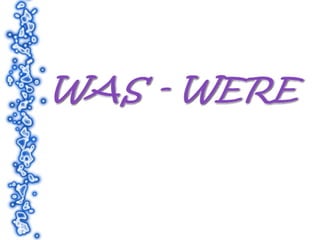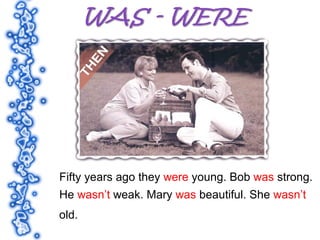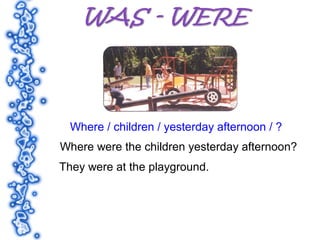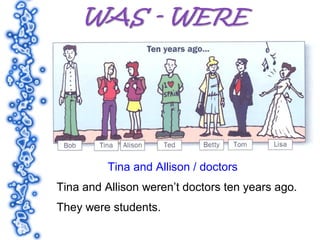The document describes how Bob and Mary were younger 50 years ago when Bob was strong but now they are both old and weak. It then provides examples of using the past simple tense of the verb "to be" including forming questions and negatives. It explains how the past simple is used to describe finished actions in the past by stating a specific time. Several examples are given of people and things that were and were not present 100 years ago. The document concludes with examples showing how people and things were different 10 years ago compared to now.



























